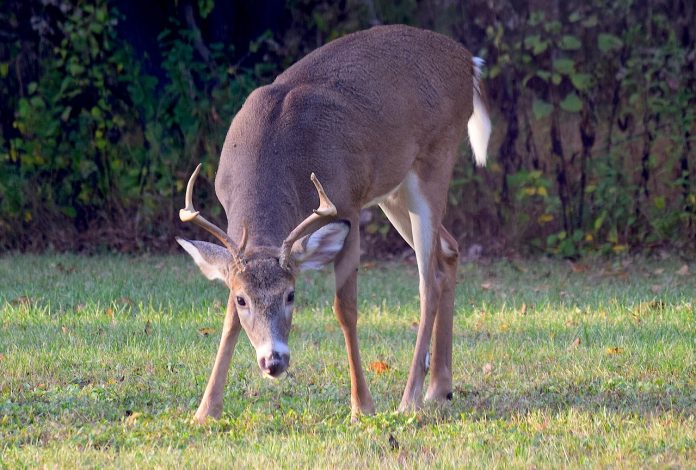With deer archery season just weeks away, our thoughts take us to the things that might mean the difference between filling a tag or not.
Most of us hunt from above, that is, from some sort of an elevated stand. We all dress in camo. Preseason practice and lots of it is a given.
But what about how we smell? After all, we can’t see it, hear it or feel it. But it’s there, and airborne odor is what tells an alarming story to every deer in the woods; probably more than any other thing.
Let’s make that more than a probable. I say that with conviction.
Years ago, the Fred Bear Museum was located in Michigan. There, one could see Bear’s equipment, trophies and 16mm films of his hunting accomplishments.
Bear was a forerunner, a pioneer in bowhunting. He used a longbow, wood shafts, honed broadheads and hardly anything else. His camouflage clothing consisted of a plaid wool shirt, a fedora-style hat and nothing more.
He knew enough to stand motionless, stalk silently and play the wind.
Compare that to today’s archery equipment, technically engineered gear, and the only thing we have in common with Bear is that our scent is blowing in the wind.
What to do
We can’t control the wind, no matter how light the breeze may be, but we can do a thing or two about our human scent.
One is to dowse our stand location with a cover scent such as fox urine or another rank natural odor that doesn’t spell danger to deer.
Avoiding scent detection
The other is to minimize our personal odor. I filled this space a few years back with a detailed list of the most effective ways to avoid being busted by an approaching deer.
Read now an abbreviated version of that column followed by additional comments.
1. Shower before heading out into the field.
Effective scent control starts at home before you ever hit the woods.
Washing hair and skin thoroughly in the shower with fragrance-free hygiene products helps rid you of odor-causing bacteria.
2. Dress in the field, away from your vehicle.
This is crucial. Odors from gasoline, food, coffee, cigarettes and pets are like alarm bells.
Keep your hunting garb in an airtight plastic tub. Some hunters plant natural odors in the tub such as apples or dirt.
3. Use a headcover to control breath, hair and skin odors.
One of the most important steps in an effective scent control regimen is to always cover the head and face.
4. Spray bow, boots and other hard goods.
Field spray can definitely contribute to a good scent control strategy when used properly.
Use field sprays for your bow, boots and other accessories.
Of course, there are carbon-based fabric clothing, woodsy tricks like approaching a stand from a course that leaves your scent far from the game trial you watch and some newer electronics that actually eliminate human odors.
The most basic method of scent control? Read the wind and place a stand downwind of the direction you will be watching. That’s what Fred Bear would do.













